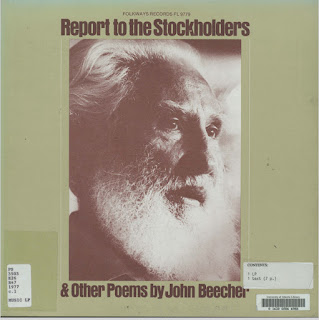Claim to Fame
Like many dying women she spent her time making collages.
I mean it. Stuffed between oversized scrapbook pages,
clashes of greeting-card images cut
from the times she had been greeted or congratulated.
None is attractive or makes any sense.
It was late in life that she became an artist and no less;
finally we all get around to making art,
the language when language ends, and the motionless track
travels on while the train puts us out
onto the platform that at any hour is inadequately lit.
A boy named Sawyer his mother calls Soya
brings chimneys of magazines seventy percent
advertising,
exactly life’s proportion. Mary Ann must make her mark.
Neighbors interrupt her making-for-posterity
collages, edge-to-edge frustration, a series of barren wants
coupled with annoyances. In her thirties she had written
letters to celebrities asking them for money and tried to
sell
to rare-book dealers their angry or astonished replies,
events
not in the collages. No words are. Language couldn’t root in
them.
The colors red and black did. Frowning, she concentrated.
Collage as a claim to fame. If only it had the body’s depths
of bone, sinew and fat. Remarkably she had gone from
shameless
begging to graduate school in her fifties, choosing a place
she could go entirely mad, a comparative arts program,
where no one said anything and no judgment was final.
Ginsberg’s
penpal, she called herself; everyone knew she was lying.
Ginsberg had replied that her letter was stupid. She ran and
begged
Sylvia Plath’s mother to “Tell me something secret about
her,”
as Mrs. Plath backed out of her Wellesley driveway
in 1977. She clings to the historical record by fingertips.
That is what she approached with scissors and what
she approached the scissors with. To acquire the few letters
from the famous in her files, the archive had to take the
lot
and store acid-free cartons of late-in-life collages
in bulk, uninteresting and unattractive, dated,
made daily as she tried to live, Mary Ann Montgomery,
old and sick and living on Social Security in a house
in Michigan she had inherited, magazines to its ceiling,
every
scrapbook filled to the limit of its binding with images.
Tired of words and reading, she tried collages, wanting
her name in an archive’s collection, and succeeded.
Mrs. Aurelia Plath was usually generous with the Sylvia Plath
fans and mourners who came unannounced to her house on Elmwood Road, but one morning in
September 1977 Aurelia could not stop to talk with a would-be visitor parking a
motor home with a Michigan license plate. The stranger was a 47-year-old
ex-nun, music teacher and divorcee trying to live by selling famous people's
letters, and obsessed with Sylvia Plath. Terribly hurt that Aurelia didn't speak with her, she sent Aurelia a
letter and, each having ulterior motives, they kept up an unctuous correspondence from 1978 to
1989: eleven years. Some of Aurelia's replies include useful biographical
information.
Mary Ann Montgomery early on begged Aurelia for "something of Sylvia's, even a letter or scrap" and for Aurelia to tell her something secret that Aurelia had never told anyone else. Aurelia declined. Montgomery sent Aurelia a poem comparing her own life to Sylvia's; she sent unwanted gifts such as flowers (once), a copy of The Giving Tree, and cassette tapes of her piano playing, refusing to take seriously Aurelia's protests that she didn't have time or energy or eyesight enough to correspond. Montgomery visited twice, once bringing a priest friend, once sick with a cold or flu that Aurelia caught.
Plath superfan Mary Ann Montgomery, Ph.D. (1931-2022) in the 1990s
distinguished herself as a university teacher and donated her letters
collection and more to the Lilly Library at Indiana University. Viewing her archive there moved me to write
the poem "Claim to Fame," which takes poetic license, but the boxes of collages are real.





















